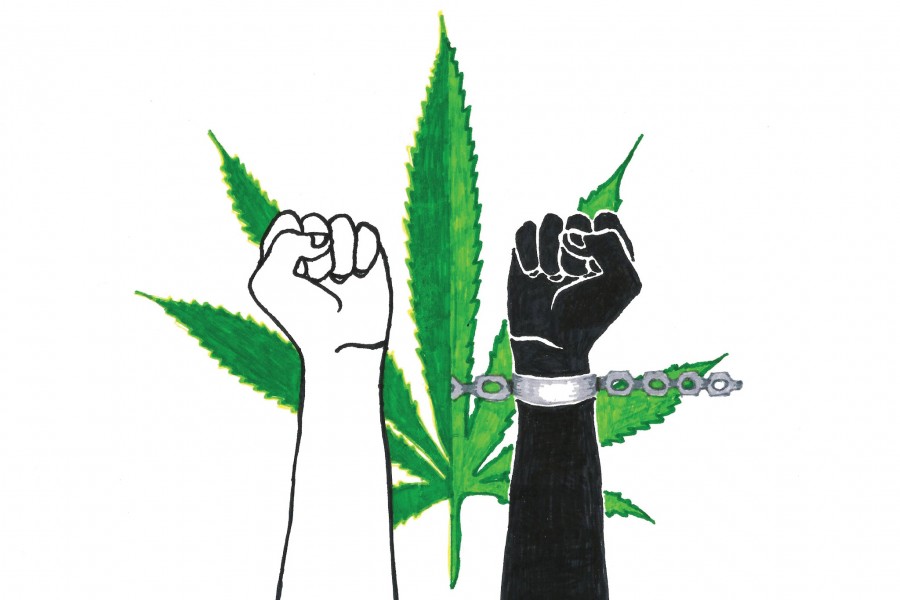Anti-marijuana laws inherently racist
The criminalization of black Americans is a substantial problem facing our country today, especially in the context of marijuana. Black people are more likely to be charged than white people for possession of marijuana due to racial stereotyping. This visible racism has significant consequences and must be seen as unacceptable.
The disparity in the criminalization of whites and blacks is not a new concept, nor is it limited solely to marijuana. Michelle Alexander’s “The New Jim Crow” discusses how America undermines black communities by targeting and criminalizing them, turning the “War on Drugs” into a war on black people.
The criminalization of blackness perpetuates the cycle, leaving some black Americans stuck in poverty. Anyone convicted of using marijuana or any other controlled substance faces losing federal assistance. This consequence is critical for marginalized groups, including people of color, who are not only more likely to be convicted but also often come from lower-class backgrounds and rely on this assistance.
Though the enactment of recent laws makes consequences less severe in many states, each charge for possession is accompanied by steep fines that some people may not have the ability to pay. While people from higher-class backgrounds may find $40-100 to be nothing, these same people are rarely the ones who face this fine.
Criminalization of black people, specifically for marijuana use, is an issue Tulane students should recognize and care about because of the prevalence of racially-biased criminalization in the city of New Orleans. Sixty percent of the city’s population is black, yet this group alone is the subject of 75 percent of all arrests and 85 percent of marijuana-related arrests. Overall use of the drug is estimated to be equal for white and black people.
Simply put, this is structural racism. Though not as obvious as name-calling or physical violence, racial stereotyping affects the lives of many. Racially-motivated differences in how the law is applied, even when implicit, cannot be excused. When someone is treated differently because of their race, even if the racism is implicit, it is wrong.
This is an opinion article and does not reflect the views of The Tulane Hullabaloo. Robin is a freshman at Newcomb-Tulane College. She can be reached at [email protected].
Your donation will support the student journalists of Tulane University. Your contribution will allow us to purchase equipment and cover our annual website hosting costs.




Leave a Comment